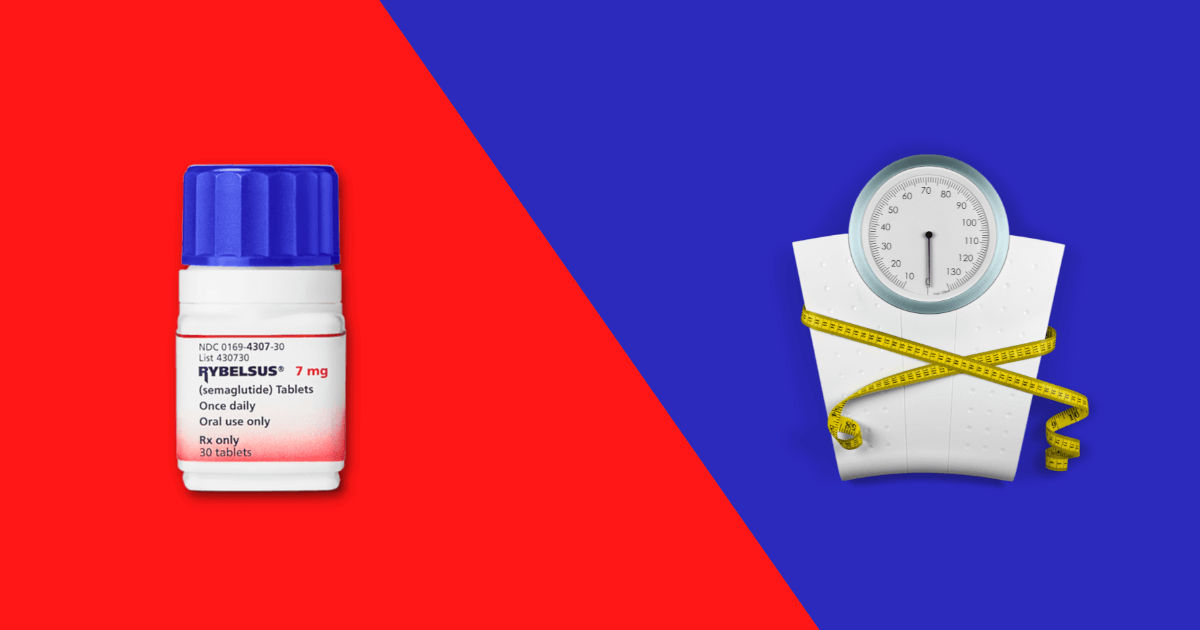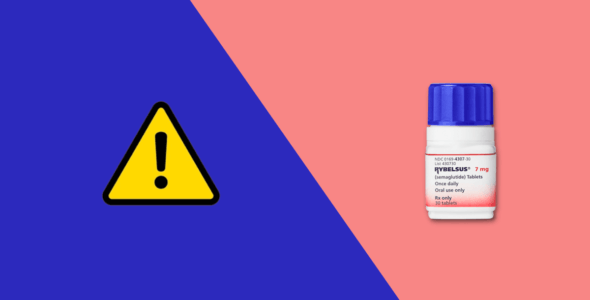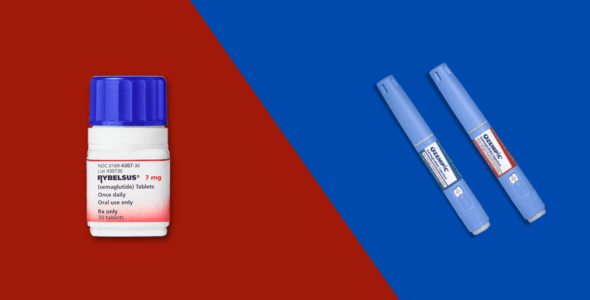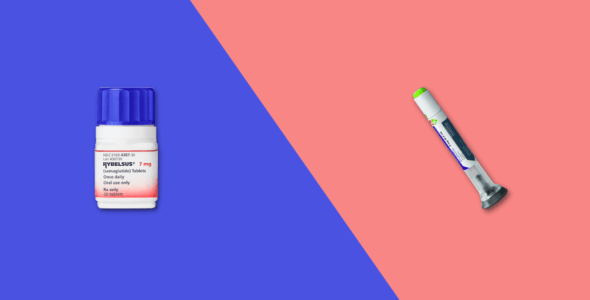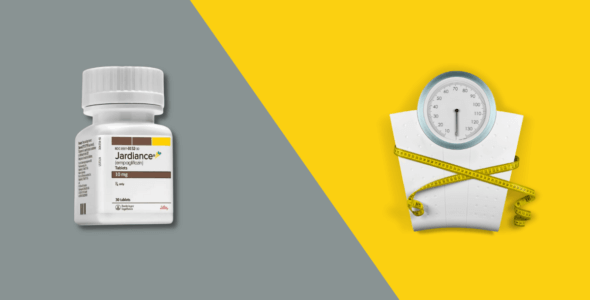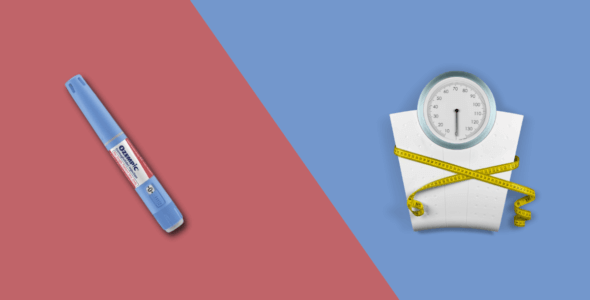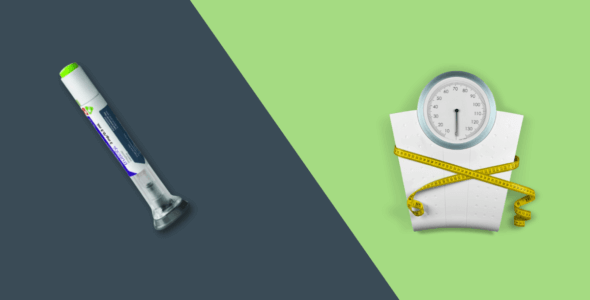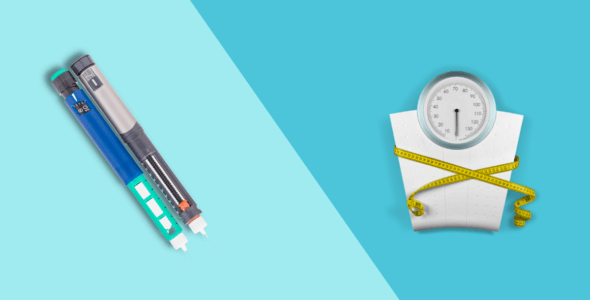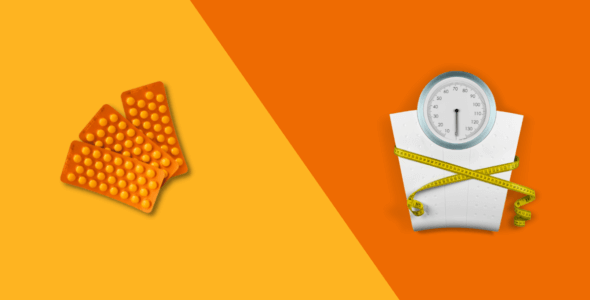Rybelsus for weight loss: does it work?
Table of contents
Rybelsus is a prescription drug used to treat type 2 diabetes and can also help you lose weight. It is not approved for the treatment of weight management. Rybelsus works by helping to reduce the amount of sugar that your body absorbs from food. This can lead to reduced calorie intake and weight loss over time. If you are considering Rybelsus for weight loss, it is important to talk to your doctor about the potential risks and benefits.
Around 70% of American adults are overweight or obese. Overweight and obesity are health conditions that are associated with some of the leading causes of death, including heart disease, diabetes, and stroke. It is also associated with a higher risk of certain types of cancer. Losing 5% to 10% of body weight through exercise and diet has been associated with a reduced risk of cardiovascular disease in adults with overweight and obesity.
What is Rybelsus (semaglutide)?
Rybelsus is an FDA-approved brand-name medication used for the treatment of type 2 diabetes mellitus. Although not approved for weight loss, it is known to help many people lose weight as it works by making you feel full after eating a meal.
Rybelsus belongs to a class of drugs called antidiabetics, Glucagon-like Peptide-1 Agonists (GLP-1 inhibitors) and is manufactured by Novo Nordisk. It is available in tablet form as a starter dose of 3mg to be taken once daily for 30 days, which is then increased to the maintenance dose of 7mg to be taken once daily. If additional glycemic control is needed after at least 30 days on the 7mg dose, the prescribing doctor may increase the dose to 14mg once daily. It should be taken by mouth on an empty stomach when you first wake up, with a sip of plain water.
This medication is used as an adjunct to diet and exercise to improve glycemic control in adults with type 2 diabetes mellitus. It is not for use in people with type 1 diabetes mellitus or for the treatment of diabetic ketoacidosis.
Is Rybelsus prescribed for weight loss without diabetes?
Rybelsus is not FDA-approved for weight loss but it can help you lose weight as a side effect.
If you are considering Rybelsus for weight loss, it is important to talk to your doctor about the potential risks and benefits of using this medication for weight loss. It is possible if your prescribing doctor determines it is safe and medically appropriate, that Rybelesus can be prescribed off-label for weight loss.
Does Rybelsus cause weight loss?
Although Rybelsus is not approved for weight loss, there is some evidence that people who take Rybelsus have lost weight while taking the medication.
If you’re considering taking Rybelsus for weight loss, you should receive medical advice from your healthcare provider regarding the potential risks and benefits.
How does Rybelsus cause weight loss?
Rybelsus will make you feel full after eating a meal, which may lead to a reduced intake of calories and weight loss over time.
People with higher initial body weight that are experiencing digestive symptoms may likely lose weight once starting treatment with Rybelsus.
Rybelsus is part of the drug class GLP-1 receptor agonists, also known as incretin mimetic.
It works by mimicking the functions of natural incretin hormones in the body and as a result, it helps to keep the blood sugar levels under control, especially immediately following a meal.
Managing blood sugar also helps to lose weight, especially when combined with a healthy diet and exercise plan.
How much weight can you lose with Rybelsus?
In a 6-month study, people that weighed an average of 194 pounds and took 14 mg of Rybelsus lost around 8 pounds, and people who weighed an average of 196 pounds and took 7 mg of Rybelsus lost around 5 pounds. These results are from a 6-month medical study with 703 adults who were diagnosed with type 2 diabetes. Rybelsus 7mg and 14mg were compared with a sugar pill when both the Rybelsus medication and the sugar pill were added to exercise and diet. The study also found that people who weighed an average of 195 pounds and had taken a sugar pill also lost around 3 pounds. While many people in this study had lost weight, some did gain weight as well.
How long does Rybelsus take to work for weight loss
The study conducted showed that people lost weight over a 6-month period in combination with diet and exercise.
Get your Rybelsus medication for only $49 per month
Get StartedWho can take Rybelsus for weight loss?
Rybelsus is used to manage type 2 diabetes mellitus in adults and also helps to reduce the risk of severe cardiovascular events.
This medication should not be used by anyone who has a family history with MTC, or an endocrine system condition called Multiple Endocrine Neoplasia syndrome type 2 (MEN 2). It should also not be used by anyone who has had a serious allergic reaction to the active ingredient, semaglutide, or any of the ingredients in the medication.
You should only use Rybelsus as prescribed by your healthcare provider. Rybelsus is not FDA-approved for weight loss. However, healthcare professionals may prescribe this medication off-label for weight management if deemed medically appropriate. Off-label use is the prescribing of a drug for an indication other than what the drug was approved to treat by the FDA. If you are interested in taking Rybelsus, tell your doctor about all other prescription drugs, over the counter products, supplements, vitamins, any other medical conditions you have including if you:
- have or have had problems with your pancreas or kidneys
- have a history of vision problems related to your diabetes
- are pregnant or plan to become pregnant
- are breastfeeding or plan to breastfeed as breastfeeding is not recommended while taking Rybelsus
Rybelsus alternatives for weight loss
Wegovy
Similar to Rybelsus, Wegovy is an injectable medication manufactured by Novo Nordisk that is FDA-approved for weight loss. It contains the same active ingredient as Ozempic and Rybelsus, semaglutide. Wegovy is a once-weekly injection and is used in combination with a healthy diet and increased physical activity to manage weight in adults.
The difference between Wegovy and Ozempic is the dose. Ozempic is prescribed up to 1 mg once per week and Wegovy is prescribed up to 2.4 mg once per week. The higher doses of Wegovy are associated with greater weight loss. A study conducted with Wegovy showed that the average person lost 35 pounds after 68 weeks (approximately 16 months).
RELATED: Wegovy vs Ozempic
Saxenda
Saxenda is another FDA-approved prescription injectable weight loss drug with the active ingredient liraglutide. It is also manufactured by the same manufacturer as Rybelsus, Novo Nordisk. Saxenda helps people to lose weight and keep the weight off.
RELATED: Saxenda vs Ozempic
Ozempic
Ozempic is a brand-name medication that is manufactured by Novo Nordisk. Ozempic is available as an injectable medication, with or without food. It has the same active ingredient as Rybelsus, semaglutide. Ozempic isn’t prescribed for weight loss, but weight loss is a possible side effect due to blood sugar management and the recommended lifestyle changes.
In a study conducted for Ozempic, the average person lost around 8 pounds with the 0.5 mg dose, and the average person lost around 12 pounds with the 1 mg dose.
RELATED: Rybelsus vs Ozempic
Is Rybelsus better than Ozempic for weight loss?
Both medications have been shown to lower body weight by around 6 lbs. However, Ozempic also has some additional benefits. In clinical studies, Ozempic had shown to lower the risk of heart attack, stroke, or death as a result of heart problems in certain people by 26% which hasn’t been confirmed with Rybelsus.
Trulicity
Trulicity is a brand-name prescription drug manufactured by Eli Lilly which is FDA (U.S. Food and Drug Administration) approved for the treatment of adults with type 2 diabetes. It is not approved for weight loss however reduced appetite and weight loss is a possible side effects of Trulicity.
RELATED: Ozempic vs Trulicity
Victoza
Victoza is also a brand-name medication manufactured by Novo Nordisk, taken once daily to lower blood sugar and A1C. Victoza is not FDA-approved for weight loss. However, due to the way this drug works, Victoza may assist with weight loss as well.
RELATED: Ozempic vs Victoza
You can also consider Compounded Semaglutide and Compounded Tirzepatide for weight loss.
Other diabetic medications that may cause weight loss
There are several other diabetic medications that may cause weight loss as a possible side effect while using the medication. Weight loss is typically a desirable effect for people who are diagnosed with type 2 diabetes.
- Biguanides:
- GLP-1 receptor agonists:
- Amylin mimetics:
- Symlin (pramlintide)
- SGLT2 inhibitors:
- DPP-4 inhibitors:
Rybelsus side effects
Common side effects of Rybelsus include :
- nausea
- vomiting
- diarrhea
- decreased appetite
- constipation
- stomach (abdominal) pains
Serious side effects can include:
- possible thyroid tumors, including cancer
- inflammation of your pancreas (pancreatitis)
- changes in vision
- low blood sugar (hypoglycemia)
- kidney problems (kidney failure)
- serious allergic reactions including swelling of your face, lips, tongue, or throat; problems breathing or swallowing; severe rash or itching; fainting or feeling dizzy; or very rapid heartbeat
This is not a complete list of all possible side effects. If you experience any side effects or allergic reactions while taking this medication, speak with your doctor right away.
Bottom line
- Rybelsus is not an FDA-approved weight-loss medication. However, it may result in moderate weight loss due to the way the medication works and how it makes you feel full after eating.
- There are studies that have shown that taking Rybelsus does in fact cause weight loss, despite not being indicated for weight loss.
- Rybelsus has the same active ingredient as Wegovy, which is an FDA-approved injectable medication for weight loss that is prescribed with a different dose.
- You can speak with your doctor to find out if Rybelsus can be prescribed off-label to help with your weight management goals.
Medically reviewed
A medical professional has reviewed this article.


Jamie Winn, PharmD
Jamie Winn, PharmD
Dr. Jamie Winn received his Doctor of Pharmacy in 2002 from the University of South Carolina College of Pharmacy, Columbia, SC. Jamie is a medical reviewer for NiceRx.

